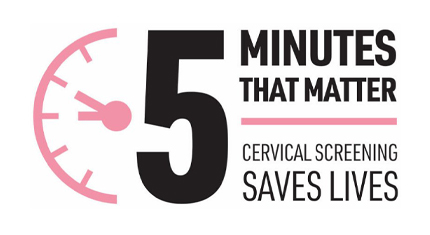North Lincolnshire Council is supporting Jo’s Cervical Cancer Trust to tackle the myths and stigma around the common Human Papillomavirus (HPV) and encourage women to have their smear test.
Across the UK, cervical screening is moving to testing for HPV first, it is a far more sensitive test but also means many more women will be told they have HPV.
Jo’s Cervical Cancer Trust is running its #SmearForSmear campaign during Cervical Cancer Prevention Week (20 to 26 January) to tackle the misconceptions about the virus.
In the majority of cases, HPV infection goes away without doing the body any harm. Sometimes it causes cells to change which, if not treated, could develop into cervical cancer. Testing for HPV is a far more accurate test estimated to prevent almost 500 diagnoses of cervical cancer every year.
North Lincolnshire Council and the UK’s cervical cancer charity want as many people as possible to understand the importance of cervical screening and to feel informed and comfortable when they get their results.
In North Lincolnshire, 75.4 per cent of women attend cervical screening, which is an increase on last year (75.1 per cent).
New research conducted by Jo’s Cervical Cancer Trust has found a third of women consider HPV a taboo topic and would not want anyone to know if they had it. A quarter haven’t heard of HPV and one in five would feel embarrassed if they were told they had the virus.
Calls to the charity’s Helpline about HPV have already risen 50 per cent over the past year. It is expecting this to significantly rise as more women are tested for HPV and is calling on health professionals to be prepared for increases in questions from patients and encouraging open conversation.
Robert Music, Chief Executive, Jo’s Cervical Cancer Trust, said:
“HPV can be confusing but it is nothing to be ashamed of. 80 per cent of us will get at least one type of HPV in our lives and in most cases the immune system will get rid of the infection without it causing any harm. We need to get the facts out about HPV and get rid of harmful myths and stigma around this really common virus.”
Kelly Crow, aged 25 from Barton upon Humber, shares her experience of having a smear test:
“After seeing on social media the importance of attending a smear test I booked my appointment. I did actually talk myself out of attending and cancelled the appointment due to the fear of what to expect or what the results may be. I did my own bit of research into cervical cancer and followed pages on social media related to raising awareness for cervical cancer. These highlighted the effects of undiagnosed cervical cancer and how these outweighed an early positive result. I knew I had to attend the appointment regardless of what the results could be.
“The second appointment was scheduled and I attended, heart beat racing and with sweaty palms, I walked through the doors as my name was called. The nurse was lovely. She really could not have put me at ease any more. She asked how I felt and gave me information on what would happen at every step of the way. The smear test itself was not painful but was uncomfortable. It was quickly carried out and my dignity was protected at all times. The nurse ensured I was okay throughout and reiterated I was in control. I will definitely be attending again when the letter comes through the door – but this time I will not cancel my first appointment.
“I would encourage others to attend and not to ignore the letter of invitation.”
Healthwatch North Lincolnshire is launching a new project to investigate barriers to accessing cervical screening for local women, with a particular emphasis on those who have learning or physical disabilities. They want to hear from women about their experiences. The online survey can be completed at: www.surveymonkey.co.uk/r/healthwatchcervicalscreeningsurvey.
To find out more about Cervical Cancer Prevention Week, visit Jo’s Cervical Cancer Trust website: www.jostrust.org.uk. For more information about cervical cancer and the NHS cervical screening programme, visit www.nhs.uk/conditions/cancer-of-the-cervix.





